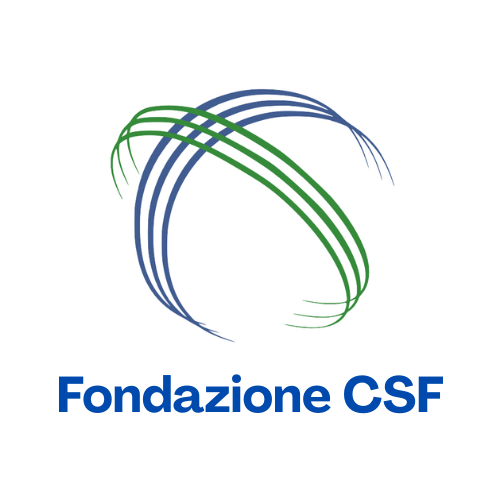Alberto Majocchi
Comment no. 131 - 29 August 2018
In Act 2 of the famous Shakespearean tragedy Hamlet, Polonius remarks, regarding Hamlet’s nonsensical replies: “though this be madness, yet there is method in't". A similar assessment may be made as to the statements by Minister Di Maio, who said that unless Europe took action to help relocate the Eritrean migrants long held hostage aboard the Italian Coast Guard ship Diciotti, Italy would cease to pay the contributions due to the European Union. This position was then upheld by Minister Salvini when he finally announced that the Eritreans illegally detained onboard an Italian military ship had been released.
In fact, after Foreign Minister Moavero Milanesi pointed out that paying contributions to Brussels is not an optional, but rather a specific legal obligation, with inevitable consequences in the event of failure to fulfill these obligations, the two Ministers and the President of the Council changed their position slightly, threatening not to approve the Multiannual Financial Framework (MFF) 2021-2027 unless requests to relocate the migrants landed in Italy in the Union were taken into consideration in future.
The obvious objective is to exert pressure on the Commission in order to exchange a vote in favour of the MFF for greater flexibility when it comes to approving the budget law in Italy. However, the position of Conte’s government – beyond its instrumental aspects – also calls into question how the EU’s budget is financed. Indeed, two fundamental facts may clearly be seen after the experience of these troubled years. Firstly, the size of the European budget is not sufficient to meet the challenges the Union has to face: internal and external security, the promotion of a carbon-free development model, investments to foster the transition to a digital economy, supporting the competitiveness of European production through research funding and guaranteeing decent employment mainly for the new generations, the production of public goods to improve the quality of life of citizens – also by reforming the welfare system to take into account longer life expectancies, structural changes in the labour market and technological developments in the health sector – support for innovative start-ups in the sectors of leisure, artistic production and the conservation of cultural and natural assets as well as adequate financial resources for a European Stabilisation Fund capable of facing future – general or asymmetric – shocks affecting the EU.
However, it is equally important to note that as long as the EU depends on contributions paid by member countries for financing the budget, it will remain exposed to all sorts of blackmail, and European decisions will be weak and unable to meet needs and will still be assessed on the basis of the principle – which violates the principles of distributive fairness – of "fair return". If the EU wants to develop an autonomous policy, defined by democratic procedures, i.e. by a majority vote, in the European Parliament and Council, in the interest of all European citizens, it will have to finally equip itself with its own, real resources.
The irresponsible behaviour of the Italian government has effectively inaugurated the campaign for the upcoming European elections, introducing a fundamental issue for the future of the EU, namely, if the European budget continues to only be financed by national contributions, the EU will remain paralysed and unable to provide the public goods needed to guarantee a future of peace and well-being for European citizens. The alternative to be proposed and strongly supported by Europeanist parties is the continuation of the process, started with the Monti Commission Report and the proposals supported by the European bodies – the Parliament and the Commission –, which aims to introduce the EU’s own real resources to finance the budget.
President Macron was the one to throw the stone into the pond when, in his famous speech at La Sorbonne, he proposed, alongside a financial transaction tax, a tax on digital businesses and a levy on a unified tax base for European companies, a European carbon tax, assisted by a comparable levy on imports coming from countries where similar carbon pricing conditions do not exist, in order to guarantee a level playing field, thus preventing the European economy from becoming less competitive. The total revenue could therefore reach around 150 billion euros, thus doubling the current size of the budget. With a rate of €50/tCO2, which was suggested by the High-Level Commission on Carbon Prices chaired by Stiglitz and Stern, the revenue of the carbon tax would be around 111 billion euros, which would push up the price of a litre of petrol by only € 0.11. A further 24 billion could come from compensatory duties levied at the border and 15-20 billion from the auctioning of tradable permits under the Emission Trading System, as advised by the Monti Commission.
This proposal must be the basis for a deep reform of the current structure of the EU, and in particular the Eurozone. In the long crisis that erupted in 2008, the capacity for action by the EU bodies was completely inadequate and the exit from the crisis was made possible by the monetary policy launched – at the instigation of Mario Draghi – by the ECB, a federal body and, therefore, able to make decisions even against the will of the strongest countries. Today, the EU has to face new problems, and not only migration control, if it wants to regain the trust of European citizens. And the solution to these new problems inevitably requires greater financial resources.
To counter the threat of the sovereigntist parties, which want to play the blackmail card of failing to pay national contributions due to the EU or failing to approve the MFF, we must therefore propose a plan that provides for a progressive evolution of the EU – starting necessarily from the Eurozone – towards a federal structure, starting by allocating its own real resources to the European budget and launching new policies that must be implemented to meet the challenges that Europe faces.
The campaign for the next European elections was initiated by Salvini, in support of sovereigntist positions. An initial response came from Chancellor Merkel, who suggested that Germany may give up leading the ECB to aim for the Presidency of the Commission. Germany’s response has made it perfectly clear that what is at stake in the next elections is political in nature and concerns the line of development of the European unification process. The sovereigntist front, which is already forming, must be rapidly countered by a federalist front, with clear proposals and the involvement of all the democratic and progressive forces that are now foundering in crisis in several European countries.
* Emeritus Professor of Finance at the University of Pavia and Vice President of the Centre for Studies on Federalism

 En
En  It
It 


